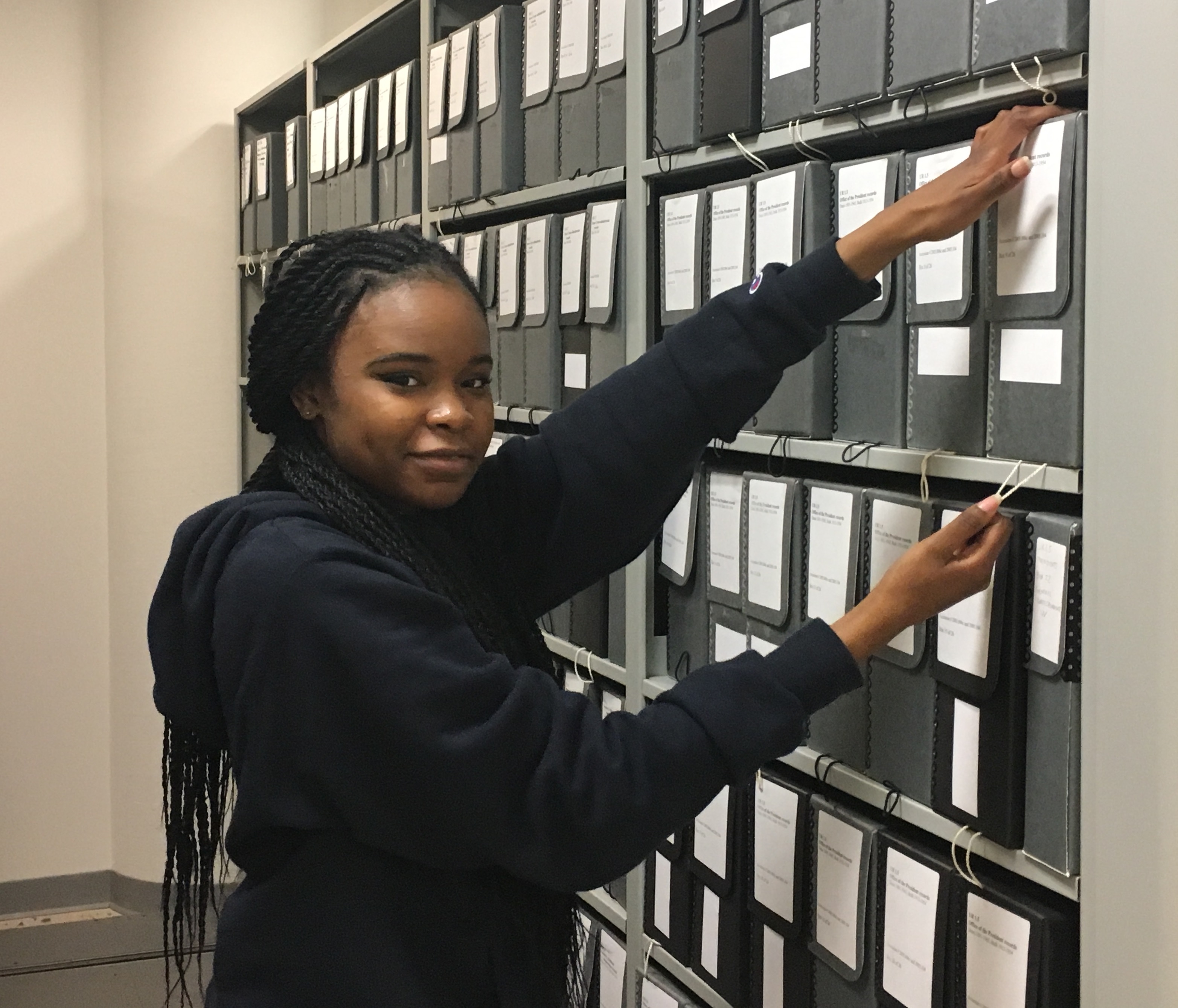Q/A with Monica Brown, Drexel University Archives’ First Co-Op Student
July 28, 2017
This summer, the Drexel University Archives welcomed its first Drexel co-op student, Monica Brown. We sat down with Monica to learn more about her experiences working in the Archives.

Q: Tell me a little bit about your background.
I was born and raised in Pittsburgh, Pennsylvania, and I came to Drexel University in 2015 as an Interior Design major. I’m now an Art History major with a minor in French, and I’m going to be a junior this upcoming year. This is my first co-op and my second is scheduled for next summer.
Q: What is your job title and what do you do in the Archives?
I am an archivist’s assistant. I’m learning the ropes of how the University Archives operate, and I’ve been helping with accessions and processing. So far, I’ve been organizing accessions and processing them to be added to the University repository finding aids.
Q: What about this position interested you?
I actually had to utilize the University Archives for an art history course I took with Dr. Elizabeth Milroy called Art History Research Methods. The class was required to do research on an assigned object from Drexel’s collection. I’m interested in becoming an art curator, and there are a lot of similarities between the two fields.
Q: What does a typical day "at the office" look like for you?
I only work four hours a day, but they’re usually highly productive. My workload can range from processing collections to organizing accessions and placing them in folders. Some days we’ll pick up a collection or receive new accessions, all of which are interesting and insightful to the goings-on here at Drexel.
Q: What skills, knowledge or experience did you develop in a class that you have used at this internship?
There are definitely a lot of parallels between the Art History Research Methods course and archival work, both of which have to do with history and observations. The art history world and the archival world overlap in this way due to this shared desire to preserve history through important artifacts and documentation. So I’ve been doing a lot of research on the collections. As I mentioned before, I’ve also been processing archival donations and then writing about them for the finding aids.
Q: What have you learned from working in the Archives so far?
When I first began working here, I learned a lot of the technicalities and the procedures: how collections are accessioned, recorded and processed. Besides that, there’s a lot of careful thinking that goes into this kind of work because it can be so meticulous. It’s important to pay attention to every little thing that you do to make sure that item is properly organized and that the materials within the collections are in their best possible condition.
Q: What has been the biggest challenge?
The processing is definitely the most challenging part, most of which consists of me entering information about a piece into Archivists’ Toolkit by hand. You have to make sure that all of the data that’s being entered is accurate and consistent while also keeping things like spelling errors and grammar in mind.
For more information about the Drexel University Archives, visit https://www.library.drexel.edu/archives or follow us on Facebook.
To learn more about Drexel’s co-op program, visit http://drexel.edu/difference/co-op/